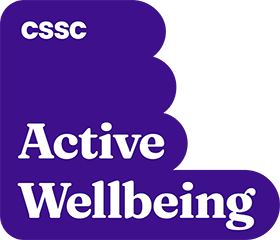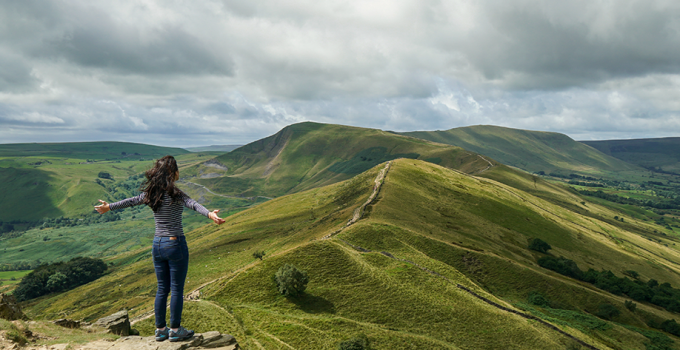Come together, right now
Walking with a group is a great way to meet old and new friends. Whether you join an organised ramble or meet up with a group of like minds, the social side is as beneficial as the physical. Heading on holiday or a business trip? Look for a guided tour, which can help you discover more about your destination, with a hefty chunk of exercise thrown in. Alternatively, you might like to take this to the next level and join the Ramblers Association (see below), where you can explore footpaths through some of the country’s most beautiful areas.
Groove is in the heart
Walking’s often ideal for people who are not up for running or high-impact sports (though if you’ve got health concerns, do check with your GP first if you’re worried). If you have an existing health condition, you’re much more likely to feel better if you’re moving regularly.
Your circulation will thank you if you walk, as it can gently raise your heart rate and keep it raised while you’re going. This helps strengthen your heart and lowers blood pressure. The Harvard School of Public Health has published research showing that women who walk just half an hour a day could reduce their risk of stroke by 20 per cent (and by 40 per cent if they increased their speed).
If you’ve been ill, walking is great for improving your health without strain. Exercise releases endorphins, which act as a mood enhancer and a natural painkiller, so gentle walks can help improve a painful condition and your mood without resorting to tablets. Walking briskly burns an amazing 400 calories per hour – ideal for staying in shape after lockdown.
Walking is low-impact, so those with problem hips or knees will benefit. It improves muscle tone for feet, legs and abdomen and even your arms. You’ll find you can breathe more deeply as your lung capacity increases, along with your stamina. This helps increase the levels of oxygen in your bloodstream, aiding your body to eliminate toxins and waste products in your body and in turn helping with joint mobility, as oxygen flows into the joints as you walk. Sleep is better if we exercise regularly too, and studies have shown that those who walk for one hour each morning have improved sleep patterns.
Forever young
It’s the ideal exercise as you age. Research has shown that people who exercise regularly in their 50s and 60s are much more likely to thrive than their more sedentary counterparts. Men aged 71 to 93 who walked more than a quarter of a mile a day, according to a study by the University of Virginia Health System in Charlottesville, had half the incidence of dementia and Alzheimer’s disease compared with their non-walking counterparts.
Similarly, a study by the University of California, San Francisco, of 6,000 women over 65 who walked 2.5 miles per day discovered that memory decline as people aged was less marked in those who walked more. What’s more, walking helps prevent osteoporosis (lowering of bone density) and will help you avoid breaks if you fall.
Finally, Captain Tom, who walked 100 lengths of his garden for the NHS at 99, it shows that you can carry on almost indefinitely.
Don’t stop the music
Add some benefits into your walk: it’s the ideal time to listen to music or an educational podcast. Alternatively, just listening to nature is calming. A note of caution: do be careful of your personal safety and beware of traffic if using earbuds.
Walk this way
Try to see walking not as a chore but as something pleasurable that you relish; trust us, before long, you’ll be plotting walking routes to places you previously visited by car or bus. There are many ways to add miles: getting off the train a stop early; taking a walking route to work, school or the shops; or taking a circular walk during your lunch hour.
These boots were made for walking
Footwear is important. While any comfortable shoes will do, you may want to choose a new pair that will leave your feet feeling great even after a long day’s ramble. You might also want something you can wear with ‘ordinary’ clothes. Luckily, there’s a trend for wearing trainers with daywear, so choose something that fits your style. Use as much care choosing your shoes for walking as you would for running.
Ramblers UK
Thinking about taking your love of walking to the next level? Join an organised walk with the Ramblers Association. They offer organised group walks along 49,000 miles of UK paths in the most stunning scenery, from mountaintop hikes to canal-side strolls. Their Walking for Health site supports those living with health conditions.
Ordnance Survey
Planning your walk is simple with the support of the iconic map-makers. Whether you like an old-school paper version or something to download, they have a plethora of maps plus a series of City Walks and Short Walks booklets.
Walkers Britain
Affordable self-guided walking holidays across the UK and Europe are offered by this company. Walks can be combined with cycling and even boat tours to get to places a bit off the beaten track. You can even join a group holiday.
Strava
This app (available for download to your phone or smartwatch) helps you plot routes and tells you how far you have gone.


